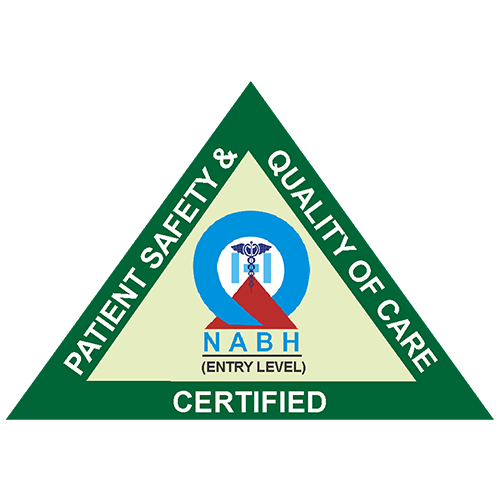Introduction:
The human body is a remarkable and complex system composed of various organs, each playing a vital role in maintaining our overall health and well-being. Among these organs, the bladder holds a significant position as a crucial component of the urinary system. However, like any other organ, the bladder is susceptible to a range of conditions and disorders that can impact its normal functioning. Recognizing the symptoms of bladder issues is crucial for early detection, diagnosis, and effective treatment. In this comprehensive blog, we will explore the common symptoms of bladder issues, empowering you to listen to your body’s signals and seek appropriate medical attention when needed.
Frequent Urination:
One of the primary indications of a potential bladder issue is an increased frequency of urination. If you find yourself needing to urinate more frequently than usual, particularly during the night (nocturia), it may be a sign that your bladder is not functioning optimally. Frequent urination can disrupt your daily routine and quality of life, prompting the need for further evaluation.
Urgency and Incontinence:
Experiencing a sudden and compelling urge to urinate, known as urgency, is another common symptom of bladder issues. This feeling may arise even when the bladder is not full, and if not relieved promptly, it can lead to urinary incontinence, which involves the unintentional loss of urine. Stress incontinence, overactive bladder, and other conditions can contribute to urgency and incontinence, impacting your confidence and social interactions.
Pain or Discomfort:
Bladder issues can manifest as pain or discomfort in the lower abdominal region, also referred to as suprapubic pain. This pain can vary in intensity and may present as a dull ache, cramping, or sharp, stabbing sensations. Such discomfort can hinder daily activities and significantly impact your quality of life. Understanding the underlying cause of this pain is essential for appropriate management and relief.
Blood in Urine:
The presence of blood in your urine, known as hematuria, is a significant symptom that should never be ignored. Whether the blood is visible to the naked eye or detected through microscopic examination, it can indicate various bladder conditions, including urinary tract infections (UTIs), bladder stones, bladder cancer, or other underlying issues. Prompt medical evaluation is crucial to determine the cause and initiate appropriate treatment.
Urinary Tract Infections (UTIs):
Recurrent urinary tract infections can also be associated with bladder issues. Symptoms of a UTI include a burning sensation during urination, cloudy urine, strong-smelling urine, and a frequent urge to urinate. If you experience frequent UTIs, it may indicate an underlying problem with your bladder, such as incomplete emptying or urinary obstruction.
Difficulty Emptying the Bladder:
Difficulty emptying the bladder completely, despite making multiple attempts to urinate, is another symptom of potential bladder issues. This condition, known as urinary retention, can be caused by bladder muscle dysfunction, nerve damage, or bladder outlet obstruction. It can lead to discomfort, urinary tract infections, and other complications if left untreated.
Cloudy Urine:
One of the telltale signs of bladder issues is cloudy urine. Normally, urine appears clear or pale yellow. However, in the presence of an underlying bladder problem, the urine may appear cloudy or milky. This cloudiness can be attributed to the presence of pus, blood, or other substances in the urine, indicating infection or inflammation within the bladder.
Persistent, Strong Urge to Urinate:
Feeling an urgent need to urinate, even when the bladder is not full, is another common symptom of bladder issues. This persistent, strong urge to urinate is known as urinary urgency. It can be accompanied by a sense of discomfort or pressure in the lower abdomen. This symptom often indicates an overactive bladder or bladder irritation.
Urinating Frequently in Small Amounts:
Frequent urination, even with minimal urine output, is another sign of bladder issues. This symptom, known as urinary frequency, can disrupt daily activities and sleep patterns. Bladder infections, bladder stones, or bladder muscle dysfunction can contribute to this symptom. It is important to note that frequent urination can also be a symptom of other medical conditions, such as diabetes or urinary tract infections.
Urine that Smells Strong:
An unusually strong or foul-smelling urine odour can be indicative of bladder issues. Infections, such as urinary tract infections, can cause the urine to emit a strong odour. Certain foods, medications, and dehydration can also influence urine odour. If the smell persists or is accompanied by other urinary symptoms, it is advisable to consult a healthcare professional for evaluation and diagnosis.
Pain During Sexual Intercourse:
Pain or discomfort during sexual intercourse, known as dyspareunia, can be associated with bladder issues. In some cases, bladder conditions like interstitial cystitis or urinary tract infections can lead to pain in the pelvic region during sexual activity. This symptom should not be ignored and warrants medical attention to identify the underlying cause and determine appropriate treatment options.
Conclusion:
Understanding the symptoms of bladder issues is vital for early detection and timely intervention. If you experience any of the mentioned symptoms or have concerns about your bladder health, it is crucial to consult a healthcare professional for evaluation and diagnosis. A thorough examination, medical history review, and possibly further diagnostic tests will help determine the underlying cause of your symptoms and guide appropriate treatment. Remember, the earlier bladder issues are identified and addressed, the better the chances of effective management and improved quality of life. Prioritize your bladder health, and be proactive in seeking medical attention when needed. Take care of your bladder, and it will take care of you.




